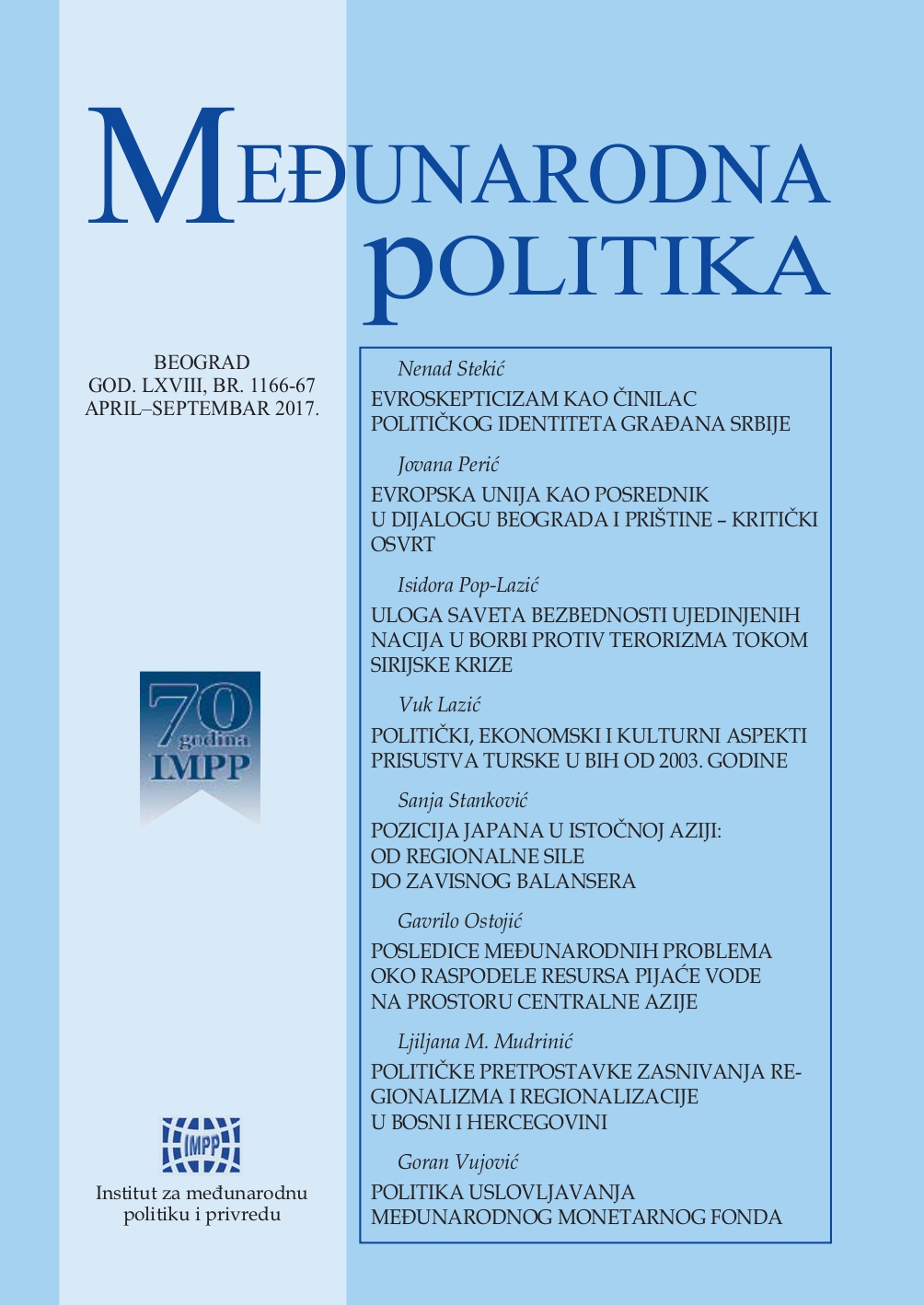Politika uslovljavanja Međunarodnog monetarnog fonda
Policy of conditionality of the International monetary fund
Author(s): Goran VujovićSubject(s): Supranational / Global Economy, Economic policy, Public Finances
Published by: Институт за међународну политику и привреду
Keywords: Policy of conditionality; structural adjustment programs and loans; economic liberalization; proliferation of conditions
Summary/Abstract: The purpose of the IMF programs is to help developing countries faced with economic and financial challenges by strengthening the stability of their foreign exchange rates, financial systems, and national currencies. This further leads to an increase in the reputation of these member-states and consequently in the confidence of foreign investors, as well as the acceleration of regional development. Nevertheless, in spite of positive results, the IMF has been criticized because it has been transformed from a consultative, technical, and non-political institution into an institution that limits the integrity of its member-states that do not achieve the expected economic growth, although under pressure by the proliferation of conditions. However, if responding to this criticism, we take into account the capacity of governments to implement reforms and the tendency of politicians toward corruption, it is clear why the IMF uses the need of member-states for loans and the relationship of subordination in the implementation of the policy of conditionality. But, it is also necessary that the IMF’s conditions for its programs be adapted to specific circumstances of the member-states.
Journal: Међународнa пoлитика
- Issue Year: 68/2017
- Issue No: 1166-1167
- Page Range: 138-157
- Page Count: 20
- Language: Serbian

